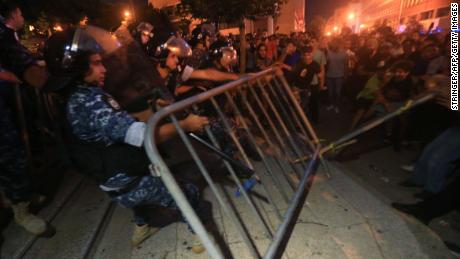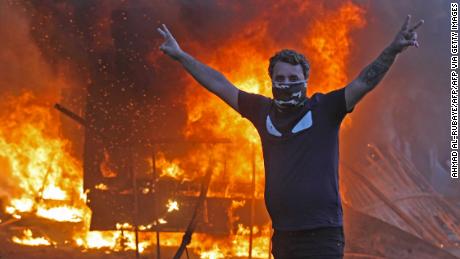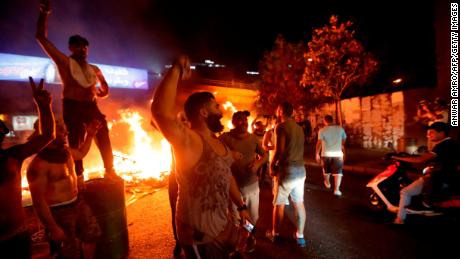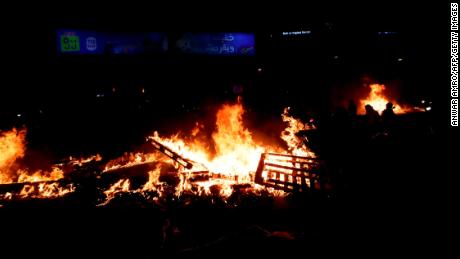Nationwide protests in Lebanon against austerity measures

The demonstrations began in Lebanon on Thursday evening and continued into the early hours of Friday morning. Protesters clashed with security forces outside government headquarters in Riad el Solh square, and several major roads were barricaded with burning tires. Forty members of Lebanon's Internal Security Forces (ISF) were wounded in the protests, the ISF said in a tweet. The ISF called on protesters to refrain from "chaos and violence."  Roads leading to Beirut's international airport were also closed by the protesters, forcing travelers to leave the airport on foot as they pulled their suitcases past protest sites in search for transportation. Earlier on Thursday, the government had announced it would charge 20 cents per day for voice over internet protocol (VOIP), a feature used by Whatsapp, Facebook and other applications. The cabinet also said it would discuss further hikes in value added tax. The announcements drew the ire of Lebanese social media users during the day, and may have helped bolster the night-time protests.
Roads leading to Beirut's international airport were also closed by the protesters, forcing travelers to leave the airport on foot as they pulled their suitcases past protest sites in search for transportation. Earlier on Thursday, the government had announced it would charge 20 cents per day for voice over internet protocol (VOIP), a feature used by Whatsapp, Facebook and other applications. The cabinet also said it would discuss further hikes in value added tax. The announcements drew the ire of Lebanese social media users during the day, and may have helped bolster the night-time protests.  The demonstrations are the largest the country has seen since a 2015 trash crisis sparked large-scale protests in Beirut.
The demonstrations are the largest the country has seen since a 2015 trash crisis sparked large-scale protests in Beirut.
The country has grappled with growing inflation, stagnant economic growth and ballooning debt. Lebanon's decaying infrastructure, which includes long and frequent power outages, has meant that living standards have dropped for many Lebanese. Around a third of Lebanon's population lives under the poverty line, according to the World Bank.Lebanon's lira, which is pegged to the US dollar, has also come under increasing pressure.
 Demonstrators set a construction site on fire in Beirut and broke into a municipality building in the south of the country, according to the state-run National News Agency.The protests come amid growing calls for the resignation of Prime Minister Saad al-Hariri's government. In an interview with local broadcasters LBC on Thursday nigRead More – Source
Demonstrators set a construction site on fire in Beirut and broke into a municipality building in the south of the country, according to the state-run National News Agency.The protests come amid growing calls for the resignation of Prime Minister Saad al-Hariri's government. In an interview with local broadcasters LBC on Thursday nigRead More – Source




